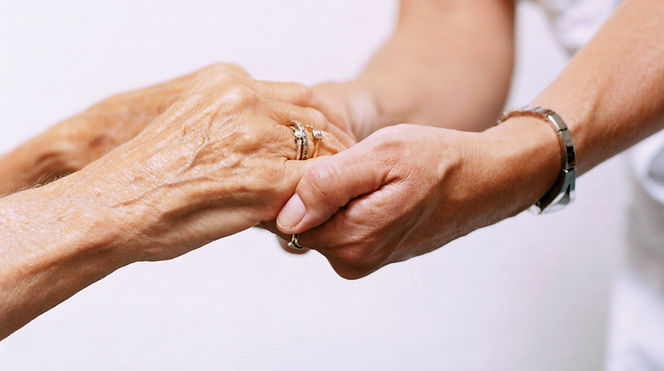top of page

Alzheimer
At Jovimed, physical activity, group activities, and cognitive activities, are the core of our
Alzheimer/Dementia program. We optimize our
care by using the Jovimed DKDC methodology of care,
based on four categories of activities
Alzheimer’s Disease
Alzheimer’s is the most common form of dementia. It is estimated that 60-70% of all dementia cases are Alzheimer’s. Alzheimer’s is a condition defined as an irreversible progressive brain disorder.
Alzheimer’s disease affects almost 50% of people over the age of 85 and is expressed by cognitive disorders such as progressive memory loss, impaired logical thinking, confusion, as well as personality and mood changes.
Eventually, physical dysfunction deprives the patient of the ability to perform the basic activities of everyday life.
Jovimed takes care of all forms of dementia. Alzheimer, vascular dementia, Parkinson’s disease, Huntington’s disease are just some of the diseases that are cared for by our trained staff.
Dementia is not just a loss of memory.

Dementia is also manifested by:
-
Aimless walking and loss of orientation
-
Mood swings
-
Low hygiene
-
Outbursts of anger and sadness
At further stages of the disease:
-
Permanent incontinence
-
Loss of speech
-
Loss of balance and visual limitations
We urge you to come and look at our facility and observe Jovimed staff at work. We are confident that you would find Jovimed to be the most suitable place to provide the needs of your family member suffering from Alzheimer’s disease or other dementia conditions.
Jovimed Alzheimer’s program:
Medical studies confirm that physical activity, group activities, cognitive activities, and functional therapy play an important role in slowing down the progression of dementia. Some recent research goes even further in its finding, confirming that such activities may even improve cognitive function.
Jovimed center offers its patients the DKDC methodology of care, based on four categories of activities (highlighted in four colors: blue, green, orange and red).
Why the DKDC Methodology is recommended in dementia:
Physical Activity, Music Therapy, fine motor Sensory Therapy, as well as (for a certain group of patients) purposeful Therapy, have been effective in improving cognition and memory, as well as better sleep, mood and confidence. Many of the methodology exercises are carried out in a seated position, allowing participation of patients with Alzheimer’s disease.
Physical exercise and other occupational therapies are conducted in groups in order to increase social activity and encourage patients to interact. It is recommended that a patient with Alzheimer’s disease be routinely stripped of emotional isolation. Caregivers should fight the prevalent tendency of the patient to drown in their own isolated world. Often, patients with Alzheimer’s disease are isolated and placed in medical centers, giving them no chance of even a slight improvement. Jovimed goes further and strives to provide specialized care geared towards dementia patients.

bottom of page
.png)